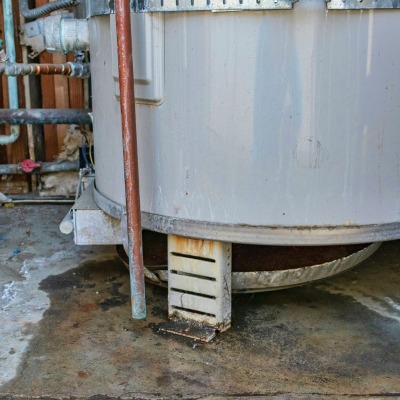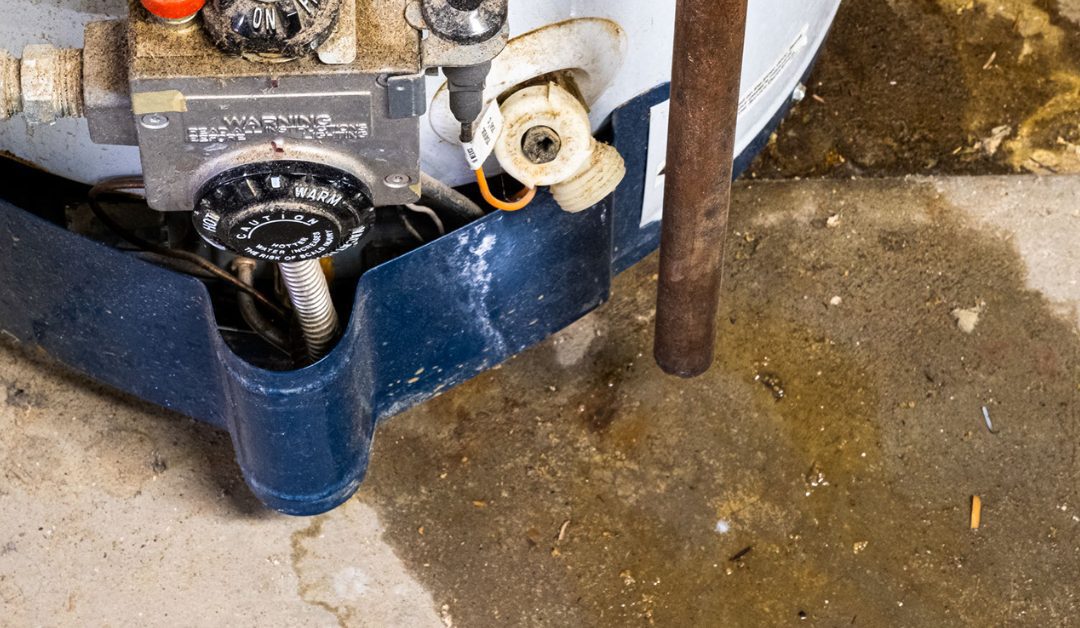Are you experiencing a water heater leak and unsure of what steps to take next? Look no further, as this article will provide you with the guidance and solutions you need. Whether it’s a minor drip or a major flood, dealing with a leaking water heater can be stressful and overwhelming. But fear not! Ehret Inc., the metro east’s leading experts in plumbing and HVAC services, is here to help you navigate through this issue with ease.
A leaking water heater can lead to various problems such as property damage, increased utility bills, and potential safety hazards. Therefore, it is crucial to address the situation promptly to prevent further complications.
Identify the cause of the leak.
The first step in addressing a leaking water heater is to identify the cause of the leak. There are several potential culprits that can cause a water heater to leak. One common cause is a faulty pressure relief valve. This valve is designed to release excess pressure from the tank, but if it becomes damaged or malfunctions, it can result in a leak.
Another possible cause of a water heater leak is a cracked tank. Over time, the tank can deteriorate due to corrosion or other factors, leading to small cracks that allow water to escape. Additionally, loose or damaged connections between pipes and fittings can also contribute to leaks.
To determine the exact cause of the leak, it’s important to thoroughly inspect your water heater for any visible signs of damage or wear. Look for puddles of water around the unit, dampness on walls or floors near the water heater, and any visible drips or leaks coming from pipes or valves. Once you have identified the source of the leak, you can take appropriate action to fix or replace any faulty components and prevent further damage.

Turn off the water and electricity supply.
One important step to take when dealing with a leaking water heater is to turn off the water supply. This is crucial in order to prevent further damage and minimize the risk of flooding. To do this, locate the shut-off valve near the water heater and turn it clockwise until it is fully closed. If you cannot find a dedicated shut-off valve, you may need to turn off the main water supply for your entire home.
In addition to turning off the water supply, it is also essential to cut off the electricity if your water heater is leaking. This will help avoid any potential electrical hazards and reduce the risk of electric shock. Locate your circuit breaker panel and switch off the power supply specifically for your water heater’s circuit. If you are not sure which circuit corresponds to your water heater, consider switching off all circuits or consulting an electrician for guidance.
By promptly turning off both the water and electricity supplies when dealing with a leaking water heater, you can effectively mitigate further damage and ensure safety in your home.
Assess whether to repair or replace.
If you notice that your water heater is leaking, it can be a cause for concern. Before jumping to conclusions and assuming that you need to replace the entire unit, it’s important to assess the situation and determine whether repairing your water heater or replacing it is necessary.
The first step in this process is to identify the source of the leak. Is it coming from a small valve or fitting that could easily be replaced? Or is it a more significant issue, such as a crack in the tank itself? If the leak is minor and can be fixed by replacing a part, then repairing may be the most cost-effective option. However, if the leak is severe or if there are multiple leaks throughout the unit, it may be time to consider replacing your water heater altogether.
Another factor to consider when deciding between repair or replacement is the age of your water heater. If your unit is nearing its expected lifespan (typically around 8-12 years), then it may make more sense financially to replace rather than repair it. This way, you can avoid potential future issues and have peace of mind knowing that you have a reliable new water heater installed.
Assessing whether to repair or replace your leaking water heater depends on factors such as the severity of the leak, the location of the leak, and the age of your unit. By understanding these factors and consulting with a professional plumber, you can make an informed decision that best suits your needs and budget.
Hire a professional plumber for assistance.
When faced with a leaking water heater, it is crucial to act swiftly and seek the assistance of a professional plumber. While some homeowners may be tempted to tackle the issue themselves, hiring a professional can save time, money, and potential damage. Plumbers possess the knowledge and expertise required to accurately diagnose and repair water heater leaks efficiently. They have access to specialized tools and equipment that enable them to identify the source of the leak promptly. Additionally, professional plumbers are familiar with various types of water heaters and their components, allowing them to provide tailored solutions for each specific situation.
By hiring a professional plumber for assistance with a leaking water heater, homeowners can also ensure their safety. Water heaters contain potentially dangerous components such as gas lines or electrical connections that require expert handling. Professional plumbers are trained in handling these hazardous elements safely while minimizing any risks involved during repairs or replacements. Moreover, licensed plumbers carry insurance coverage that protects both themselves and homeowners from any damages that may occur during the repair process.
When encountering a leaking water heater, it is highly recommended to hire a professional plumber for assistance rather than attempting DIY repairs. Their experience, knowledge, access to specialized equipment, and focus on safety make them well-suited for this task. By entrusting professionals with this job, homeowners can relax knowing that their water heater will be fixed efficiently without risking further damage or endangering themselves in the process.
Conclusion:
If you discover that your water heater is leaking, it is crucial to take immediate action. Ignoring a leaking water heater can lead to severe damage to your home and potential health risks. Firstly, assess the situation by determining the source of the leak. If it is a minor issue such as a faulty valve or loose connection, you may be able to fix it yourself. However, if the leak appears more serious or you are unsure about how to proceed, it is best to call a professional plumber who can evaluate and repair the problem safely.
Remember that prevention is key when it comes to water heater leaks. Regular maintenance and inspections can help identify any potential issues before they escalate into major leaks. Consider scheduling annual check-ups with a licensed plumber who can inspect your water heater for signs of wear and tear or other problems. By addressing any small leaks or repairs promptly, you can extend the lifespan of your water heater and avoid costly repairs or replacements in the future.
Dealing with a leaking water heater requires swift action and proper evaluation of the situation. Whether you choose to tackle minor repairs yourself or seek professional assistance, do not ignore this issue as even small leaks can cause significant damage over time. Remember that regular maintenance and inspections are essential in preventing leaks from occurring in the first place. Taking proactive measures will not only save you money but also ensure that your household’s safety and comfort are not compromised due to a faulty water heater.

